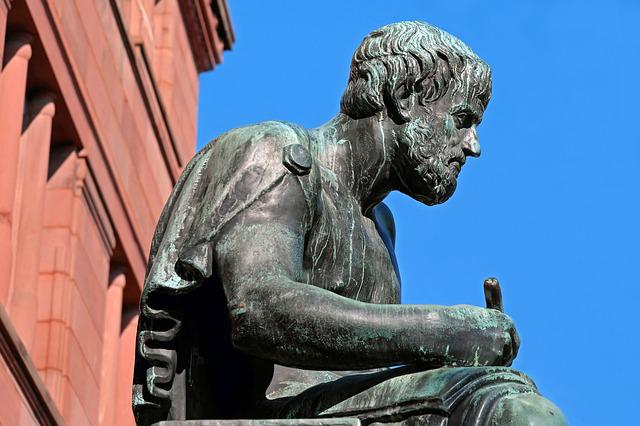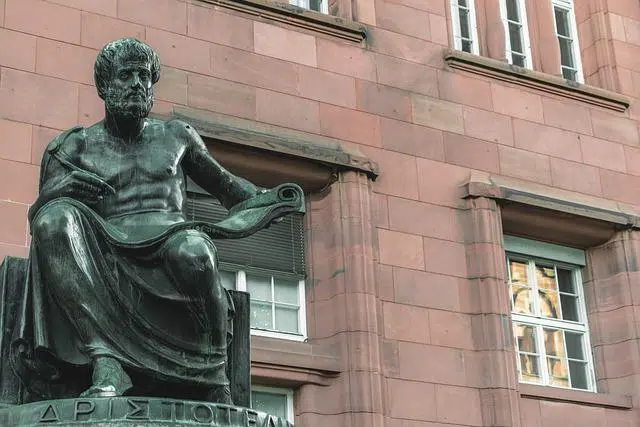
One who follows the thoughts of Aristotle is mentioned as a peripatetic.
The term peripatetic derives from the Latin peripatetĭcus , in turn from the Greek peripatētikós (which can be translated as “who walks” ). It is an adjective that allows one to describe someone who follows the thoughts of the Greek philosopher Aristotle .
The etymology of the concept is linked to the fact that Aristotle , while speaking with his disciples , walked. The first peripatetics, therefore, were those who talked, debated and walked with him.
The importance of Aristotle
The Peripatetic school emerged from the teachings of Aristotle , who lived between 384 and 322 BC and cultivated various fields, as was customary at that time, among which we can highlight philosophy and science. He was born in the northern region of Ancient Greece.
When talking about Aristotle, Plato is often also mentioned, since both are considered the fathers of Western philosophy. Even today the influence of his ideas can be seen, which have transcended more than two thousand years. Plato was one of his teachers throughout the two decades he spent at the Academy of Athens.

The Peripatetic school arose in the surroundings of the temple of Apollo Lycian.
Origin of the peripatetic movement
Aristotle inaugurated his first school (the Lyceum ) in the surroundings of the temple of Apollo Lycio , which is where the origins of the Peripatetic school lie. The thinker used to walk and reflect in the gardens of said temple. After his death, the Peripatetic movement was oriented toward scientific and naturalistic issues that transcended the philosophical.
The Lyceum is a gymnasium , and the walks along which the reflection sessions with Aristotle's students took place were done in a covered portico. It is curious that over the years this term, lyceum , has been transformed to the point of being accepted as a synonym for "teaching center."
Main references
Andronicus of Rhodes, Aristoxenus, Theophrastus, Satyr y Straton of Lampsacus fueron algunos de los integrantes más importantes de la escuela peripatética. De acuerdo a los especialistas, este center filosófico y científico fue el más relevante de la época grecorromana.
Regarding Andronicus of Rhodes , we can say that he was the one who assumed the direction of the school between the years 78 and 47 BC, after ten other students took over from their now deceased teacher and mentor. He is especially known for having produced the first major publication of Aristotle's original texts. He received help from Tyranion, a librarian and grammarian who meticulously selected sources. The order of Andronicus' work is very similar to what we know today.
Aristoxenus of Tarentum , also known as Aristogenes , devoted himself to music and philosophy. His homeland was the current city of Taranto, in Italy, which at that time was called the town of Taras . His main education was received from his father, who had studied with Socrates , and was complemented by Lampro of Erythras and Xenophilus, without forgetting Aristotle. As a curious fact, it did not suit him at all that he was not named successor to the leadership after the death of Aristotle, but that this honor went to the peripatetic Theophrastus .
The peripatetics of "Merlí"
In recent years, many people became familiar with the notion of peripatetic thanks to “Merlí” . This Spanish TV series, which aired between 2015 and 2018 , revolves around the experiences of a philosophy teacher who encourages free thinking in his students, whom he calls “the peripatetics.” The script was written by Héctor Lozano, Mercè Sàrrias and Laia Aguilar , and the direction was by Eduard Cortés .
As the chapters go by, these peripatetics - and the viewers - learn various characteristics of the doctrines of Socrates , Friedrich Nietzsche , René Descartes , Karl Marx and Thomas Hobbes , among others.
